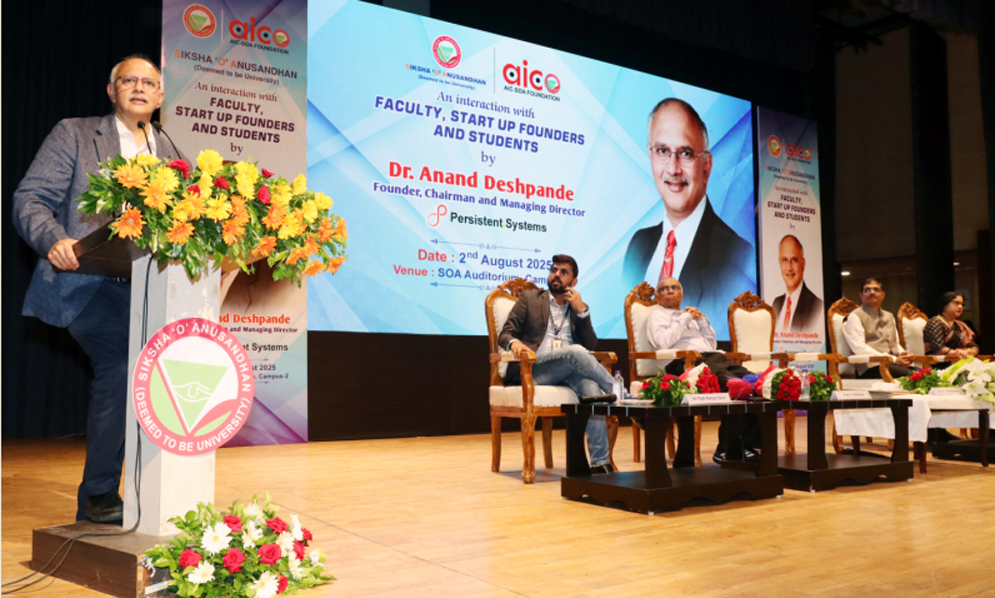Bhubaneswar: The rise of artificial intelligence presents both immense opportunities and significant challenges, particularly for the future workforce.
According to Dr. Anand Deshpande, Founder, Chairman, and Managing Director of Persistent Systems, students today must shift their mindset from seeking jobs to creating them.
“We are moving towards a situation where work will increase but jobs will decrease,” Dr. Deshpande stated during an interaction with students at SOA Deemed to be University. He emphasized that instead of simply looking for employment, students should focus on how to create new opportunities and roles in an evolving economy.
Dr. Deshpande highlighted AI’s powerful capabilities, noting its “amazing ability to solve problems and push up productivity.” He pointed out that AI can write better code than humans, but also cautioned that it can “distort facts like no one can.” He identified the United States and China as the current leaders in the field of AI development.
Given the rapid pace of change, Dr. Deshpande advised students to embrace continuous learning. He stressed that what they are learning today will not be relevant for the entirety of their careers, which for many, could span 60 years.
“No company you join after leaving the university will last six decades,” he said, underscoring the need for adaptability and lifelong skill development.
Beyond technical skills, Dr. Deshpande urged students to focus on teamwork, networking, and maintaining core values. He encouraged them to have a clear aspiration and purpose, knowing “where you are going.”
He also offered a reassuring perspective on mistakes, calling them “normal” and not a “big deal,” drawing a parallel to tennis legend Pete Sampras, who succeeded despite a perceived weakness in his game.
Ultimately, Dr. Deshpande’s message serves as a call to action for students to be proactive, innovative, and resilient in the face of technological change, rather than passive recipients of it.
The future of work, he suggests, belongs to those who can master AI while creating their own professional paths.


